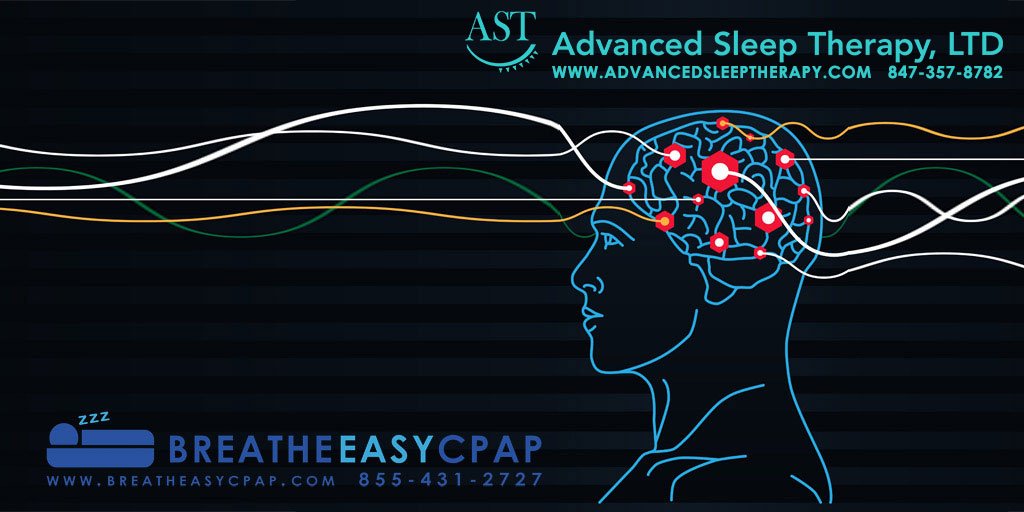How Does Sleep Apnea Affect the Brain?
Sleep apnea isn’t just a fancy way to describe snoring-it’s a serious medical condition with a laundry list of consequences. Sleep apnea deprives your body of oxygen hundreds of times a night stressing your organs, promoting cardiovascular disease, weight gain, and even negatively impacting the way your brain functions.
Your Brain on Sleep Apnea
Before understanding what sleep apnea does to your brain, it’s important to understand just how it works to interrupt your memory and cause actual brain injury. A sleep apnea episode occurs when your breathing stops during the night, usually as the result of a narrowed airway from some sort of obstruction. In many cases, this obstruction is caused by weak muscles around the throat or excess weight near the chest and neck. This moment without breath worries your body which in turn sends signals to the brain make a Hail Mary pass for oxygen. The brain responds by partially or totally waking you, disrupting your sleep and haunting you for the entirety of the next day.
These little interruptions in sleep, or micro arousals, are partially to blame for a disturbance in memory, concentration, and fatigue during the day, but they are only a part of it. One study performed by scientists at UCLA found that sleep apnea creates real brain injury due to the frequent episodes of oxygen deprivation. The research gathered in this study found that people suffering from the disorder had a 20% smaller mammillary body, an anatomical structure found on the underside of the brain. Injury or reduction in size of this structure leads to memory loss and has been associated with other disorders such as Alzheimer’s disease.
Memory Loss is a Big Deal
A reduction in the size of your mammillary body means that you’ll have a harder time remembering in both the short and long-term. If you haven’t realized this yet, memory is an essential part of functioning and making it through the day. Have you been feeling more forgetful lately? Leaving your keys at home, forgetting to send that email at work, or accidentally skipping your errands on the way home? Sleep apnea may be the culprit.
Your Brain Can Heal
If you’re like the many Americans who’ve gone for years without getting treatment for their sleep apnea, brain injury may weigh heavily on your mind. Can you ever get back to functioning normally? Probably. Most people who start continued positive airway pressure say that they see an improvement in these symptoms fairly quick. Researchers suggest taking a vitamin B complex supplement or eating foods rich in thiamin. Exercise is also proven to help generate new cells in the hippocampus. Most importantly, sleep apnea needs to be treated so that this interruption of brain function can cease and your brain can heal.
Continuous positive airway pressure machines, or CPAP therapy, is the trusted way to treat this serious medical condition. Research shows that using one of these machines, like Resmed’s Air Sense 10, can prevent a heart attack, stroke, and worsening memory loss.
You deserve to function at your best. If you’re snoring, have symptoms of memory loss, trouble concentrating or all of the above, call your primary health provider as soon as possible.

